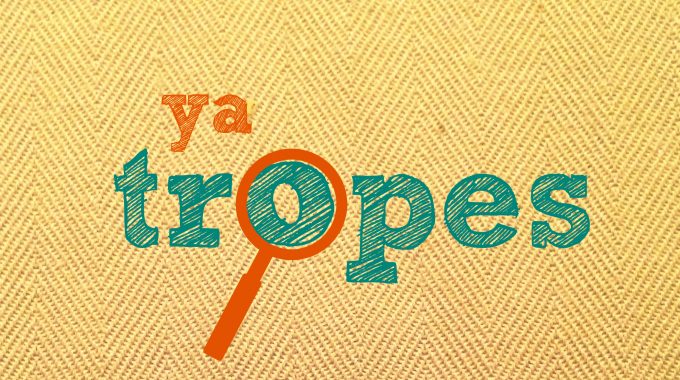
WHAT IF: 4 hypothetical young women get rid of all those nasty verbal tics that hold them back
In which I imagine what might happen if hypothetical young women took the advice of Naomi Wolf, Ellen Petry Leanse, Sloane Crosley, Lake Bell, etc., and abolished everything they dislike about female voices: including vocal fry, the words “just” and “sorry,” uptalk, and too-high vocal tones.
THE SITUATION
Emma has a job interview for a coveted position: lifestyle correspondent for an online magazine geared toward young people. Her qualifications are super-impressive, and she’s pretty sure she’ll embody poise and intelligence in her screen test, now that she’s zapped her vocal fry and trained herself to stop uptalking.
THE OUTCOME
The screen test goes fine, but in the end the bosses decide to go with another girl. Why? They can’t quite put their finger on it, but the other young woman was just more…relatable. She talked the way their subscribers talk. There was something instantly familiar about her, a quality Emma just didn’t seem to project.
THE SITUATION
It’s Kira’s first week working at an advertising agency staffed by fellow millennials and Gen-Xers who like to keep things informal and fun. She has to ask one of her colleagues to dig up some archived files for her and send them over, which might be kind of a pain. After reading over her email, she deletes two phrases featuring “just” and one instance of “sorry,” vowing to communicate nothing but confidence and professionalism in her new position.
THE OUTCOME
At lunch, two of Kira’s colleagues mention her in conversation. “I don’t know, I get kind of a cold vibe from her,” says Lucy. “The way she requested those files? It almost seemed like she was ordering me around, like I don’t have anything else to do.” Ty says, “I know, right? She’s sort of hard to read. She’s like, so formal and stiff. Like she’s trying too hard to prove herself to some big invisible Boss Man in a three-piece suit. I want to just tell her to R-E-L-A-X.”
THE SITUATION
Jess has a date with an amazing girl she met online. They’re meeting in person for the first time tonight at her favorite Thai restaurant. She wants to come across as poised and self-assured, so she’s been practicing speaking the “right” way: she consciously lowers her naturally high-pitched voice, ditches the uptalk, and speaks slowly and carefully to erase all traces of vocal fry.
THE OUTCOME
The date goes…just okay. She and Natalie have a lot in common, but maintaining an unnatural tone and speech pattern is exhausting for Jess. A half hour into the date, she regrets working so hard to change her natural voice, since Natalie’s uptalking and vocal-frying all over and she’s still pretty damn charming and smart. She wants to relax and go back to her real voice, but that would be way too weird now that she’s already been parading her “new and improved” one for thirty-four minutes. What was I thinking? She stabs at her massaman curry. That I’d just talk like this for our entire relationship? Natalie senses Jess is preoccupied and not being herself, and things get uncomfortable. They end the date early, before the mango sticky rice.
THE SITUATION
Gina is excited and nervous to start her new stint as a college tour guide. She’s been reading a bunch of articles on how girls should talk, and she knows uptalking and excessive sorry-ing are two of her biggest “speech sins.” She records herself practicing her script over and over until finally, every line sounds like a decisive statement.
THE OUTCOME
Her first day goes okay, but she’s wondering why she’s finding it hard to hold her tour group’s attention. Their eyes are wandering and they seem sort of bored by her even, assured delivery. While she’s thinking about this, she loses her train of thought for a second—she wants to say “sorry” for the blip, but she catches herself just in time. There’s an awkward beat of silence where the “sorry” would have been, and she feels herself blushing while she tries to get her speech back on track.
Meanwhile, just within earshot, her friend Manny is conducting a tour of his own. He’s using a varied bag of vocal tricks to keep his audience hooked and entertained, including plenty of uptalk to hold their attention, project openness and friendliness, and make sure they’re still with him. When he messes up and says “crate gollege” instead of “great college,” he cracks up at himself and says “Sorry, sorry…my Spoonerism final exam is tomorrow.” His tour goes great and a few kids even stay behind afterward to get his honest take on campus life.
***
It’s been said before by more incisive commentators than I, but I’ll throw my hat in the ring anyway: The policing of young women’s verbal tics is a short-sighted, potentially damaging trend. It implies that:
1) there’s a single right way to speak, and it’s appropriate for all situations
2) there’s a certain type of person all young women should be aiming to impress, and he’s an old white guy whose standard for vocal excellence is Katharine Hepburn
3) vocal patterns do not and should not evolve over time—i.e., there will always be one immutable way to communicate strength and intelligence
4) if you’re a guy, there’s no need to worry about any of this, because your penis cancels out any question marks decorating your speech
That’s not to say there’s no value in learning how to read a room. When you’re meeting with a stonefaced sixty-four-year-old person in a business suit and that person speaks the Queen’s English and might give you a job, by all means cool it with the “like”s and uptalk if you think it’ll give you a better shot. But this is a diverse world, and the workplace and dating pool are both evolving dramatically as previous generations age out of it.
When I was twenty-two and had my first office job out of grad school, my bosses were two rather intimidating women in their fifties/sixties; they drove cars with plush interiors and lived in luxe mountain estates and pronounced “what” like “hwat.” For four years I watched my speech around them, carefully modulating my voice and editing out stray “like”s. It was tiring and never felt like the real me, even after years of doing it. But now those women are retired, and I live in a world of forty-year-old managers who pepper their speech with “like” and “sorry,” begin many an email with “just wondering” or “just wanted to let you know,” and cant the ends of their sentences like a golfer’s upswing. These are dynamic, respected professionals who have somehow managed to advance in their careers and get life partners to love them despite the severity of their alleged crimes against spoken English.
So when we tell young women to change how they speak, we’re pretending the world is homogenous and the parameters of acceptable speech haven’t shifted since 1965.
We’re pretending there isn’t a vast array of workplaces and situations in which their youthful vocal patterns are a clear signpost that they fit right in.
We’re pretending that verbal tics hinting at an excess of kindness and consideration (“just” and “sorry”) are too feminine to have value, as if kindness and consideration aren’t two qualities everyone of every gender should strive for.
We’re saying there’s no benefit to being your authentic self, and that when people judge you for the timbre of your voice and not the eloquence of your words, the problem is yours, not theirs.
We’re saying what we say a lot to girls: a nip here, a tuck there, and you’ll be presentable. You’ll be loved. You’ll be taken seriously.
Sorry, but what if we all just, like…stopped that?


I am so glad you wrote this! I feel like that it’s just(!) another way to attack young women and not let them have autonomy over their choices. It takes your voice away. Feminism to me means being who you want to be and not having someone else tell you that your choices are wrong. “Good for her! Not for me!” – Amy Poehler. Keep chanting that to yourself each time you feel like telling another women (or person) how they should dress, act, look, do their eyebrows, talk, present themselves sexually or any other thing you might disagree with.
Totally agree, Kat, and I love that Amy Poehler quote.
I really appreciated this article. I’ve long been a champion of “like” as way of indicating approximate speech. People mock the teenager girl who relates a conversation by saying, “he was like…and I was like…and he was like…” I think this girl is being honest about the difference between memorizing exactly what he said and offering an approximation of what he said. “He said” promises a direct quote. “He was like” only promises to recollect the general sentiment which, unless one is a court stenographer, is usually all we can do.
Thanks, Karelia. That’s a really good point about “like.” I see it as a bit of verbal insurance that signals you’re about to take creative liberties:
“She was like ‘KEEP IT DOWN OR I’M SENDING MY GOONS IN TO BREAK SOME KNEECAPS'”
does a better job of conveying sentiment than the literal
“She said, ‘Keep it down’ in a nasty tone of voice.”
Anyway, thanks for reading and commenting!